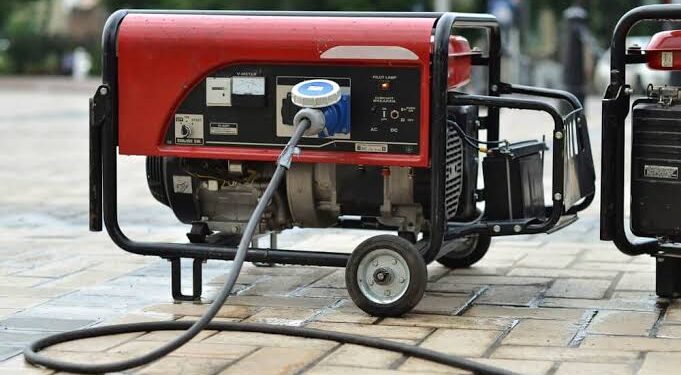By Emmanuel Nduka
Manufacturers in Nigeria spent a staggering N1.11 trillion on fueling generators in 2024 due to unreliable power supply and rising diesel and petrol prices. This represents a 42.3% increase from the N778.68 billion spent in 2023, according to the Manufacturers Association of Nigeria (MAN).
MAN’s latest H2 2024 Economic Review shows that spending rose sharply between the first and second halves of the year. In H1 2024, manufacturers spent N450.80 billion, which surged by 75% to N790.07 billion in H2 2024.
Sector-specific data reveals:
- Food, Beverage, and Tobacco: N474.41 billion (up from N354.76bn in 2023)
- Chemical and Pharmaceutical: N284.68 billion (double the 2023 amount)
- Non-Metallic Mineral Products: N138.49 billion (up 33.7%)
- Textile, Apparel, and Footwear: N26.45 billion (from N6.97bn in 2023, a fourfold increase)
Despite some improvement in power supply—daily average electricity rose to 13.3 hours in 2024 from 10.6 hours in 2023—power outages and high tariffs continue to strain operations. Tariffs for Band A consumers reportedly rose by over 200%, and 12 national grid collapses occurred during the year.
Manufacturing capacity utilization increased slightly to 57% in 2024, compared to 55.1% in 2023, with a modest 1.2 percentage point rise in the second half of the year.
Persistent challenges like energy costs, foreign exchange volatility, and high-interest rates continue to hinder sectoral growth. However, some sectors—including Non-Metallic Minerals, Auto Assembly, and Pharmaceuticals—showed notable improvements.
Segun Ajayi-Kadir, MAN’s Director-General, highlighted the sector’s difficulties: inflation, rising production costs, weak consumer demand, and forex instability. He called for stronger policies to improve macroeconomic stability, energy access, and affordable financing to support industrial growth.
Gabriel Idahosa, President of the Lagos Chamber of Commerce and Industry, added that MSMEs are especially vulnerable, battling poor power supply, insecurity, and unresolved issues with electricity meters. Many small businesses have closed or downsized due to skyrocketing operational costs.
He urged the government to step in with electricity subsidies, meter refunds, and clearer regulations to support small enterprises—the backbone of Nigeria’s economy.


































